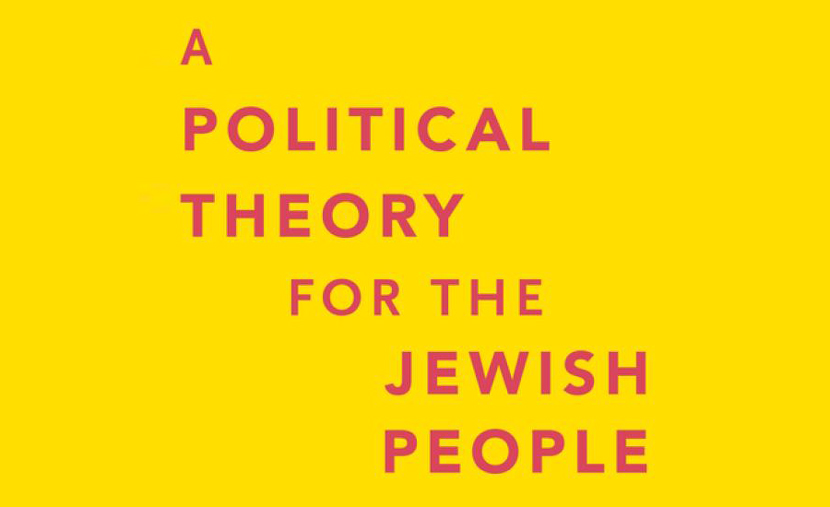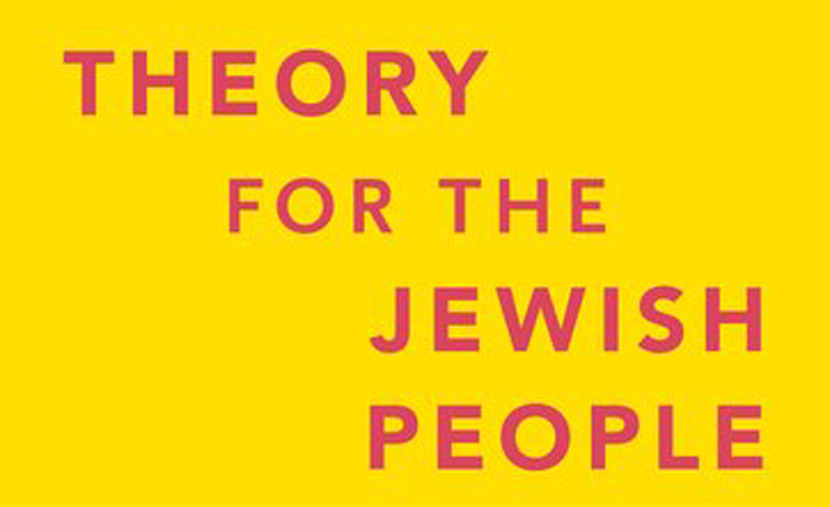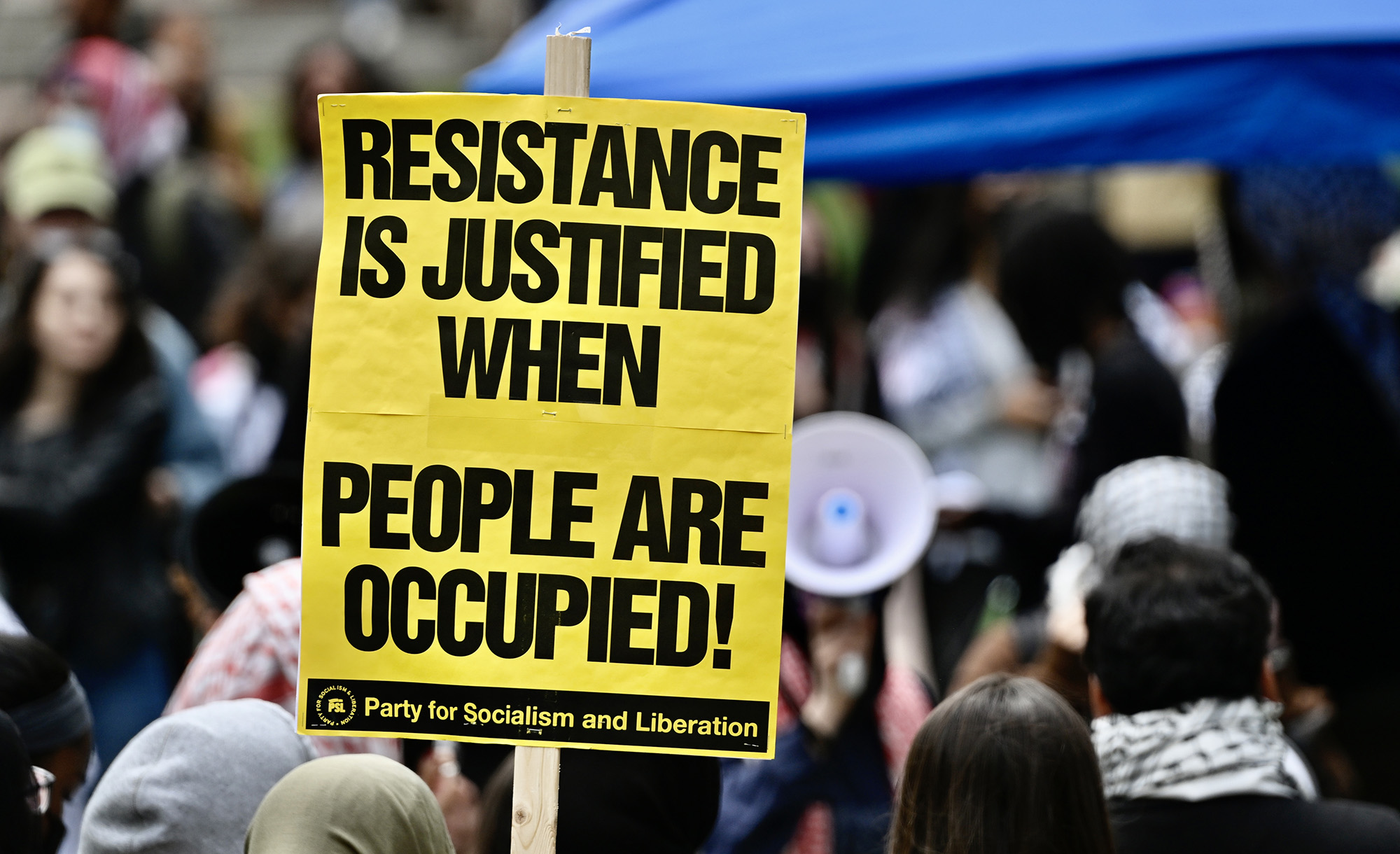Academic liberals tend to distrust nationalism and all its works, regarding them as rooted in atavistic and parochial sentiments and therefore as promoting a politics inimical to a humane universalism. Such liberals tend to be particularly distrustful of—if not downright hostile to—Zionism, the national movement of the Jews, and they often believe that this distrust is mandated by the version of liberalism to which they subscribe.
They have a point; but what they fail to grasp is that their belief says less about Zionism than about their brand of liberalism. Now, in order partly to correct that misapprehension, the Israeli political and legal theorist Chaim Gans has undertaken the worthy task of showing that liberalism and “the main goal of Zionism, namely, to establish an independent Jewish national home in the land of Israel” can be woven together to make a morally and politically compelling whole.
In his new book, A Political Theory for the Jewish People, Gans, a professor of law at Tel Aviv University, approaches his task by adroitly drawing on several bodies of scholarship and employing the rigorous reasoning of analytic philosophy. At the same time, he spices his argument with the ardent and unequivocal moral judgments of an engaged partisan. Along the way, he rejects both mainstream interpretations of Zionism and various versions of post-Zionism, advancing in their place a theory he calls “egalitarian Zionism.”
Let’s take the argument in stages.
Historically, Zionism is often described in terms of three familiar strands or divisions: political Zionism, championed most famously by Theodor Herzl; cultural Zionism, whose leading spokesman was Ahad Ha’am; and religious Zionism, associated in the first instance with Rabbi Abraham Isaac Kook. Gans, however, prefers a different approach. Before getting to his favored “egalitarian Zionism,” he distinguishes two “ideal types” of mainstream Zionism: the “proprietary” and the “hierarchical.”
In practice, Gans observes, these two theoretical constructs mix and mingle. Yet since 1977, when Likud’s Menachem Begin broke the left’s stranglehold on the prime minister’s office, most Israeli leaders as well as the proverbial man in the Israeli street, Gans contends, have embraced the proprietary interpretation. This is the same form of Zionism, he asserts, that also inspired the founders of Israel and became incorporated into the Israeli educational system.
As Gans summarizes it, the proprietary view holds that the essence of Judaism is the nationhood of the Jewish people, anchored in Jewish ownership of the land between the Jordan River and the Mediterranean Sea. Ever since their expulsion by the Romans from their ancient homeland, according to proprietary Zionists, Jews have yearned to return to the land of Israel. With the establishment of the state of Israel, which represents a “negation of the exile,” all Jews should emigrate there out of solidarity with the nation and for the sake of the simple self-respect that comes from the blessings of sovereign self-government.
So much for the proprietary interpretation—which, Gans maintains, has done great harm to the Zionist cause. As for the hierarchical interpretation, he presents it as less representative of Israel today but vastly more compelling philosophically and morally—and, though he does not take notice, also more compatible with the leading expressions of the political and cultural Zionism that informed Israel’s founding. Gans locates the major formulations of the hierarchical interpretation in the work of several distinguished Israeli public intellectuals: the legal scholar and politician Amnon Rubinstein and the classicist Alex Yakobson, co-authors of Israel among the Family of Nations; Ruth Gavison, also a legal scholar and the author of, among many other important contributions, “The Jews’ Right to Statehood: A Defense”; and the political scientist and historian of political thought Shlomo Avineri, author of The Making of Modern Zionism.
These pillars of Israel’s center-left establishment start from the assumption that national groups—the Jews no less and no more than any other—are entitled to exercise the universal right to self-government and to create a state whose political institutions and public culture reflect their traditions. As Gans stipulates, this conception of Zionism demands the vigorous protection of the full panoply of formal rights accorded to Jews and non-Jewish minorities alike in the Jewish state. But as the proponents of the hierarchical interpretation well understand, self-government rooted in national identity also increases the possibility that citizens who belong to national or religious minorities will feel less at home in the state than those who belong to the majority.
And this circumstance, in Gans’s view, constitutes a form of inequality inconsistent with liberal imperatives and injurious to the morality of the hierarchical interpretation. True, the “injustices” sanctioned by that interpretation “do not come close to the dreadful oppression and injustice resulting from the proprietary conception.” Nevertheless, the hierarchical version “does condemn Israel to enforce inequality on a daily basis” by denying its Arabs “a collective presence in Israel’s political, symbolic, and public spheres.”
Where, then, does this leave things? Gans sympathizes with the presumed moral motives behind post-Zionism—a 1980s outgrowth of the Israeli academy that, in his words, “calls for the Jews in Israel and the world to divest themselves of their national identity as Jews.” He also affirms much of the post-Zionists’ scathing critique of Israel. In his judgment, the post-Zionists are right to condemn Israel for oppressing West Bank and Gaza Palestinians, discriminating against Arab citizens, and mistreating Jewish immigrants from North Africa and the Middle East.
Gans disagrees, however, with the post-Zionists’ radical political conclusions. Just because proprietary Zionists insists on Jewish ownership of the entire land of Israel, and just because hierarchical Zionists insist on the right of Jews to exercise hegemony in the state of Israel, it does not follow that colonialism or any other kind of injustice is built into the very idea of Zionism. Nor do the injustices perpetrated in its name require that Zionism be cast aside.
And so, having disposed of what he regards as defective defenses of Zionism while also showing the limits of Zionism’s leading contemporary critics, Gans sets forth his preferred solution: the egalitarian interpretation. This rests on “a more modest and accurate claim” about the historical status of Diaspora Jews in the late 19th century than the proprietary Zionists’ contention that Jews then constituted a nation in the full sense of the term. And its justification for Zionism fits both with central propositions in Israel’s Declaration of Independence and with the arguments adduced by “mainstream academics and jurists” like Rubinstein, Yakobson, Gavison, and Avineri.
Gans’s egalitarian Zionism affirms “the universal right to national self-determination.” It acknowledges the historical attachment of the Jewish people to the land of Israel and understands this attachment as a crucial part of many Jews’ identity. And it recognizes that in their flight from European persecution, Jews were justified by that historical attachment to settle in the land of Israel despite the heavy cost it imposed on the indigenous Arab population.
But, for Gans, it is not enough for Jews to have created a state that promises full civil and political rights to all its citizens; a state that under enormously difficult circumstances since its birth in 1948 has made great progress in delivering on that promise; and a state that, like all other functioning liberal democracies around the world, has room for improvement in ensuring equal opportunity for minority citizens. Members of Israel’s Arab minority, according to Gans, are owed more than the equal democratic opportunity to persuade a majority of their fellow Israelis to incorporate Arab traditions and Arab nationalist aspirations into Israeli political institutions and public culture. Rather, the egalitarian interpretation demands that Israel recognize the “collective rights” (emphasis added) of its Arab citizens to their own national expression within the state of Israel.
Gans contends that this conferral of collective rights on Arab citizens will benefit not only them but the Jewish citizens of Israel as well. Most dramatically, it will do so by promoting the establishment of a Palestinian state in the West Bank and Gaza. But not only that: thanks to its grounding in a comprehensive understanding of equality, “a settlement of the conflict between Jews and Arabs based on egalitarian Zionism is likely to be a great deal more stable than settlements based on other versions of Zionism and approaches to it.”
What to make of all this? A clue resides in Gans’s three highly loaded terms: proprietary, hierarchical, egalitarian. Arranged as these are in an ascending order of moral and political correctness, they supply a useful signal not only of his biases but, more critically, of his deeply problematic understanding of liberalism itself. In service of that understanding, he both misrepresents mainstream Zionism and enters dubious judgments about the liberal tradition’s teachings concerning the proper aims of government power. This is all the more egregious in a book that emphasizes careful definitions, subtle distinctions, and in-depth conceptual analysis.
Start with Gans’s egalitarian or left-wing interpretation of liberalism, which he casually equates with liberalism itself—that is, the tradition, based on the premise that human beings are by nature free and equal, that came into its own in 17th- and 18th-century England and is dedicated to establishing limited government to secure individual rights. But the two are not the same: however incompatible mainstream Zionism may be with his brand, it is not incompatible with liberalism itself. The same partisan truncation serves to shelter the left-liberal prejudices and blind spots that Gans shares with the post-Zionists.
This is not to say that Gans is wrong to criticize the proprietary interpretation for distorting history and faith. Down through the centuries, many if not most Jews made their peace with Diaspora existence: while they may have wholeheartedly pledged devotion to Jerusalem and the promised land in their prayers, in practice the majority dedicated themselves to building prosperous and fulfilling lives in the far-flung lands in which they lived, and nowhere more so than in America. As for the proprietary interpretation’s assertion that the whole of historic Israel belongs to the Jewish people, Gans is again correct that a claim of ownership deriving from religious belief and ancient history cannot, in the court of contemporary world opinion, defeat claims grounded in individual rights, the realities of politics, and international law. Nor can it satisfy the liberal and democratic temper with which majorities in the West, very much including Israel, are endowed.
Gans, however, provides scant evidence to support his disdainful contention that “most Jews in Israel/Palestine adhere to proprietary Zionism.” Certainly that interpretation has its spokesmen in Israeli politics, some of them well placed, and flare-ups of its more illiberal elements figure in the public debate, tempting support from voters under the constant threat of Palestinian rockets and missiles, bombs and firearms, axes and knives. But Gans offers no grounds for rejecting or reassessing the conventional view that political Zionism, permeated as it was with liberal and democratic scruples, provided the principal inspiration for the founding of Israel and continues to infuse the Jewish state’s institutions and public culture.
What about the Zionism of Rubinstein et al., which Gans, despite finding it greatly superior to the proprietary version, still judges to be inadequately liberal? This stems from an equivocal interpretation of the school of political thought that he espouses. At the heart of the liberal tradition is the promise of formal equality, or basic individual rights and equality before the law—not the promise of substantive equality, or ensuring that all citizens feel equally at home. Blurring this crucial distinction enables Gans to glide over the liberal tradition’s hallmark appreciation of the limits of law and the proper uses of state power—qualities toward which left-liberals regularly display indifference if not contempt. It also enables him to obfuscate the break with traditional liberalism involved in left-liberalism’s tendency to seek state enforcement of recently manufactured collective rights.
Finally, that same tendency, and the evasions and fantasies that must be summoned to sustain it, are abundantly visible in Gans’s claim that granting collective rights to Israel’s Arab citizens not only is just in itself but also will help calm tensions and lead to stability. In fact, such a move is less likely to stabilize than to excite the very sectarian demands and passions that have impeded the incorporation of Arab Israelis into the common life of the country—and that are roiling Arab states throughout the Middle East.
Egalitarian Zionism is altogether afflicted with a blame-Israel-first mentality that can only further fan the flames of Arab resentment. In Gans’s telling, the failure to end the conflict with the Palestinians in Gaza and the West Bank by achieving a two-state solution is primarily the fault of Israel and stems from the illiberalism of mainstream Zionism. Decades of corrupt Palestinian leadership, the Palestinian Authority’s relentless incitement to hatred of Israel and Jews through its government-controlled educational system and media, wave after wave of Palestinian terror, the collapse of the Arab state system following the upheavals of 2011, and the spread of Islamic extremism throughout the Middle East and the world—these hardly factor into his analysis.
In his historical reconstruction, Gans even goes so far as to assert that among the “acts of exploitation and dispossession in the early stages of Zionism” was the “atrocious expulsion of 700,000 Palestinians during Israel’s War of Independence.” It is painful to see a serious scholar joining forces with the most extreme and reckless post-Zionists in disseminating the discredited claim that in 1948, a tiny and newly declared Jewish state, fighting for its life against the onslaught of five Arab armies, was solely responsible for producing the Palestinian refugee crisis.
In sum, egalitarian Zionism promulgates a profound misunderstanding of liberal democracy. In a state that is both liberal and democratic, it is neither historically anomalous nor theoretically deviant for the majority to imbue political institutions and popular culture with its national spirit. To be sure, the obligation in liberal democracies to protect individual rights sets limits on what majorities may legislate. Authorizing language, calendars, and anthems that reflect a majority’s culture and traditions is compatible with the equal protection of all citizens’ basic individual rights. Infringing the freedom to worship, to speak, to assemble, and to buy and sell property and earn a living is not. Israel, like every other liberal democracy, faces a perennial challenge in striking the proper balance between majority preferences and the rights shared equally by all; its record in this regard, however imperfect, stacks up with the best of them.
Misconceptions about the principles of freedom impair Gans’s assessment of Israel and lead astray the political theory he advances for the Jewish people. To achieve a better understanding of Zionism and liberal democracy in Israel, not to mention the legitimate claims of nationalism and the nation-state in general, academic liberals would do well to recover a more adequate understanding of the liberal tradition itself.
More about: History & Ideas, Israel & Zionism, Liberalism, Nationalism, Political philosophy








